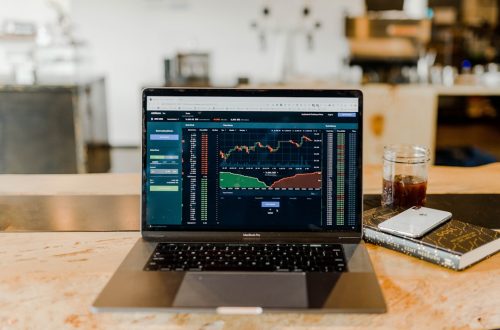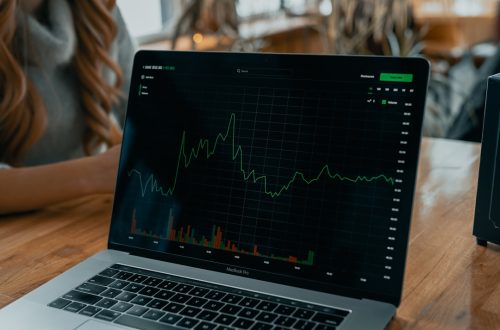Cryptocurrency is a digital or virtual form of currency that uses cryptography for security and operates independently of a central bank. The most well-known cryptocurrency is Bitcoin, but there are thousands of other cryptocurrencies available in the market, each with its own unique features and uses. Cryptocurrencies are decentralized and operate on a technology called blockchain, which is a distributed ledger that records all transactions across a network of computers.
One of the key features of cryptocurrency is its security. Cryptocurrencies use cryptographic techniques to secure transactions and control the creation of new units. This makes it nearly impossible to counterfeit or double-spend. Additionally, the decentralized nature of cryptocurrencies means that they are not controlled by any single entity, making them immune to government interference or manipulation.
Another important aspect of cryptocurrency is its potential for investment. Many people buy and hold cryptocurrencies as a form of investment, hoping that their value will increase over time. The volatile nature of the cryptocurrency market means that prices can fluctuate dramatically, offering the potential for high returns but also posing significant risks.
In summary, cryptocurrency is a digital form of currency that operates independently of a central bank, using cryptography for security and blockchain technology for decentralization. It offers potential for investment but also comes with significant risks due to its volatile nature.
Key Takeaways
- Cryptocurrency is a digital or virtual form of currency that uses cryptography for security and operates independently of a central bank.
- When choosing a cryptocurrency exchange, consider factors such as security, fees, available cryptocurrencies, and user interface.
- Setting up a wallet for your cryptocurrency involves choosing between a hardware, software, or paper wallet, each with its own security and accessibility features.
- Research and select the right cryptocurrency to buy by considering factors such as technology, team, community, and market potential.
- Making your first cryptocurrency purchase involves creating an account on a cryptocurrency exchange, funding your account, and placing a buy order for the desired cryptocurrency.
- Storing and securing your cryptocurrency can be done through hardware wallets, paper wallets, or secure digital wallets, and it’s important to back up your wallet and keep your private keys safe.
- Monitoring and managing your cryptocurrency investment involves tracking the market, staying informed about news and developments, and considering factors such as diversification and risk management.
Choosing the Right Cryptocurrency Exchange
When it comes to buying and selling cryptocurrencies, one of the most important decisions you’ll make is choosing the right cryptocurrency exchange. A cryptocurrency exchange is a platform that allows you to buy, sell, and trade cryptocurrencies. There are many different exchanges to choose from, each with its own set of features, fees, and security measures.
When choosing a cryptocurrency exchange, it’s important to consider factors such as security, fees, supported cryptocurrencies, user interface, and customer support. Security is paramount when dealing with cryptocurrencies, so it’s crucial to choose an exchange with strong security measures in place to protect your funds. Look for exchanges that offer two-factor authentication, cold storage for funds, and a good track record of security.
Fees are another important consideration when choosing a cryptocurrency exchange. Exchanges typically charge fees for transactions, withdrawals, and deposits, so it’s important to compare fee structures and choose an exchange that offers competitive rates. Additionally, consider the range of cryptocurrencies supported by the exchange, as well as the user interface and customer support options available.
In conclusion, choosing the right cryptocurrency exchange is crucial for buying and selling cryptocurrencies. Consider factors such as security, fees, supported cryptocurrencies, user interface, and customer support when making your decision.
Setting Up a Wallet for Your Cryptocurrency
Once you’ve chosen a cryptocurrency exchange and purchased your first cryptocurrency, it’s important to set up a wallet to store and manage your digital assets. A cryptocurrency wallet is a digital tool that allows you to securely store, send, and receive cryptocurrencies. There are several different types of cryptocurrency wallets to choose from, each with its own unique features and security measures.
The most common types of cryptocurrency wallets are software wallets, hardware wallets, and paper wallets. Software wallets are digital applications that can be accessed on your computer or mobile device, offering convenience and accessibility. Hardware wallets are physical devices that store your cryptocurrency offline, providing an extra layer of security against hacking and theft. Paper wallets are physical documents that contain your public and private keys, offering a secure way to store your cryptocurrency offline.
When setting up a cryptocurrency wallet, it’s important to follow best practices for security. This includes creating a strong password, enabling two-factor authentication, and backing up your wallet in case of loss or theft. Additionally, be sure to research and choose a reputable wallet provider with a good track record of security and user satisfaction.
In summary, setting up a wallet for your cryptocurrency is an essential step in managing your digital assets. Consider the different types of wallets available and follow best practices for security to protect your funds.
Researching and Selecting the Right Cryptocurrency to Buy
| Cryptocurrency | Market Cap | Price | Volume | 24h Change |
|---|---|---|---|---|
| Bitcoin | 1.2T | 40,000 | 30B | +2% |
| Ethereum | 300B | 2,500 | 20B | +3% |
| Ripple | 50B | 1.20 | 5B | +1% |
With thousands of different cryptocurrencies available in the market, it can be overwhelming to decide which ones to buy. When researching and selecting the right cryptocurrency to buy, it’s important to consider factors such as the technology behind the cryptocurrency, its use case, market demand, and potential for growth.
One of the first things to consider when researching a cryptocurrency is the technology behind it. Look into the whitepaper and technical documentation for the cryptocurrency to understand how it works and what sets it apart from other cryptocurrencies. Consider factors such as scalability, security, and decentralization when evaluating the technology behind a cryptocurrency.
Another important factor to consider is the use case for the cryptocurrency. Some cryptocurrencies are designed for specific use cases such as decentralized finance (DeFi), non-fungible tokens (NFTs), or privacy-focused transactions. Consider whether the use case for the cryptocurrency aligns with your investment goals and beliefs about the future of digital assets.
Market demand and potential for growth are also important considerations when selecting a cryptocurrency to buy. Research the market trends and demand for the cryptocurrency, as well as any upcoming developments or partnerships that could impact its value. Additionally, consider the long-term potential for growth based on factors such as adoption rate, community support, and technological advancements.
In conclusion, researching and selecting the right cryptocurrency to buy requires careful consideration of factors such as technology, use case, market demand, and potential for growth. Take the time to research and evaluate different cryptocurrencies before making an investment decision.
Making Your First Cryptocurrency Purchase
Once you’ve researched and selected the right cryptocurrency to buy, it’s time to make your first purchase. Buying cryptocurrency on an exchange is a relatively straightforward process, but it’s important to follow best practices for security and financial management.
To make your first cryptocurrency purchase, you’ll need to have an account set up on a cryptocurrency exchange and have funds available to buy with. Once you’re logged into your exchange account, navigate to the trading section and select the cryptocurrency you want to buy. Enter the amount you want to purchase and review the transaction details before confirming your purchase.
When making your first cryptocurrency purchase, it’s important to consider factors such as market timing, transaction fees, and order types. Market timing refers to the strategy of buying cryptocurrency at an opportune time based on market trends and price movements. Transaction fees can vary depending on the exchange and payment method used, so be sure to review fee structures before making a purchase. Additionally, consider using different order types such as market orders or limit orders to execute your purchase at the desired price point.
After making your first cryptocurrency purchase, it’s important to transfer your funds to a secure wallet for storage. This helps protect your investment from potential security threats on the exchange and gives you full control over your digital assets.
In summary, making your first cryptocurrency purchase involves navigating the trading section of a cryptocurrency exchange and following best practices for security and financial management. Consider factors such as market timing, transaction fees, and order types when making a purchase.
Storing and Securing Your Cryptocurrency

After making your first cryptocurrency purchase, it’s crucial to store and secure your digital assets properly. Storing your cryptocurrency in a secure wallet helps protect it from theft or hacking while giving you full control over your funds.
There are several different options for storing and securing your cryptocurrency, including software wallets, hardware wallets, and paper wallets. Software wallets are digital applications that can be accessed on your computer or mobile device, offering convenience and accessibility. Hardware wallets are physical devices that store your cryptocurrency offline, providing an extra layer of security against hacking and theft. Paper wallets are physical documents that contain your public and private keys, offering a secure way to store your cryptocurrency offline.
When storing and securing your cryptocurrency, it’s important to follow best practices for security. This includes creating a strong password for your wallet, enabling two-factor authentication if available, and backing up your wallet in case of loss or theft. Additionally, be sure to research and choose a reputable wallet provider with a good track record of security and user satisfaction.
In addition to securing your wallet, it’s important to stay informed about potential security threats in the cryptocurrency space. This includes staying up-to-date on best practices for securing your funds and being cautious about potential scams or phishing attempts.
In conclusion, storing and securing your cryptocurrency is essential for protecting your digital assets from theft or hacking. Consider different options for storing your cryptocurrency securely and follow best practices for security to protect your investment.
Monitoring and Managing Your Cryptocurrency Investment
Once you’ve purchased and stored your cryptocurrency securely, it’s important to monitor and manage your investment over time. The volatile nature of the cryptocurrency market means that prices can fluctuate dramatically, so it’s crucial to stay informed about market trends and potential developments that could impact the value of your investment.
One way to monitor your cryptocurrency investment is by using portfolio tracking tools or apps that provide real-time updates on the value of your holdings. These tools can help you track price movements, portfolio performance, and overall market trends to make informed decisions about buying or selling cryptocurrencies.
In addition to monitoring market trends, it’s important to stay informed about potential developments or news that could impact the value of your investment. This includes staying up-to-date on technological advancements in the cryptocurrency space, regulatory changes that could impact market dynamics, and any partnerships or collaborations that could affect the value of specific cryptocurrencies.
Managing your cryptocurrency investment also involves making strategic decisions about buying or selling based on market trends and your investment goals. Consider factors such as market timing, diversification of holdings, and risk management strategies when making decisions about managing your investment.
In summary, monitoring and managing your cryptocurrency investment involves staying informed about market trends, technological developments, and potential news that could impact the value of your holdings. Use portfolio tracking tools or apps to monitor price movements and make strategic decisions about managing your investment over time.
It’s important to set clear investment goals and risk tolerance, and to regularly review and adjust your portfolio accordingly. Diversifying your holdings across different cryptocurrencies can help spread risk and maximize potential returns. Additionally, staying vigilant against potential security threats and scams is crucial to safeguarding your investment. By staying proactive and informed, you can effectively monitor and manage your cryptocurrency investment for long-term success.
FAQs
What is cryptocurrency?
Cryptocurrency is a digital or virtual form of currency that uses cryptography for security and operates independently of a central bank. It is decentralized and typically operates on a technology called blockchain.
How can I buy cryptocurrency?
You can buy cryptocurrency through online cryptocurrency exchanges, peer-to-peer platforms, or through cryptocurrency ATMs. You will need to create an account on a cryptocurrency exchange, link a payment method, and then place an order to buy the cryptocurrency of your choice.
What payment methods can I use to buy cryptocurrency?
You can use various payment methods to buy cryptocurrency, including bank transfers, credit/debit cards, and in some cases, PayPal or other digital payment platforms. The availability of payment methods may vary depending on the cryptocurrency exchange or platform.
What are the risks of buying cryptocurrency?
The risks of buying cryptocurrency include price volatility, security risks, regulatory uncertainty, and the potential for fraud or scams. It’s important to do thorough research and understand the risks before buying cryptocurrency.
Do I need a digital wallet to buy cryptocurrency?
Yes, you will need a digital wallet to store the cryptocurrency you purchase. There are different types of wallets, including hardware wallets, software wallets, and online wallets. It’s important to choose a secure and reputable wallet to store your cryptocurrency.
Is it legal to buy cryptocurrency?
The legality of buying cryptocurrency varies by country and is subject to regulations. It’s important to be aware of the legal and regulatory status of cryptocurrency in your country before buying or trading.




